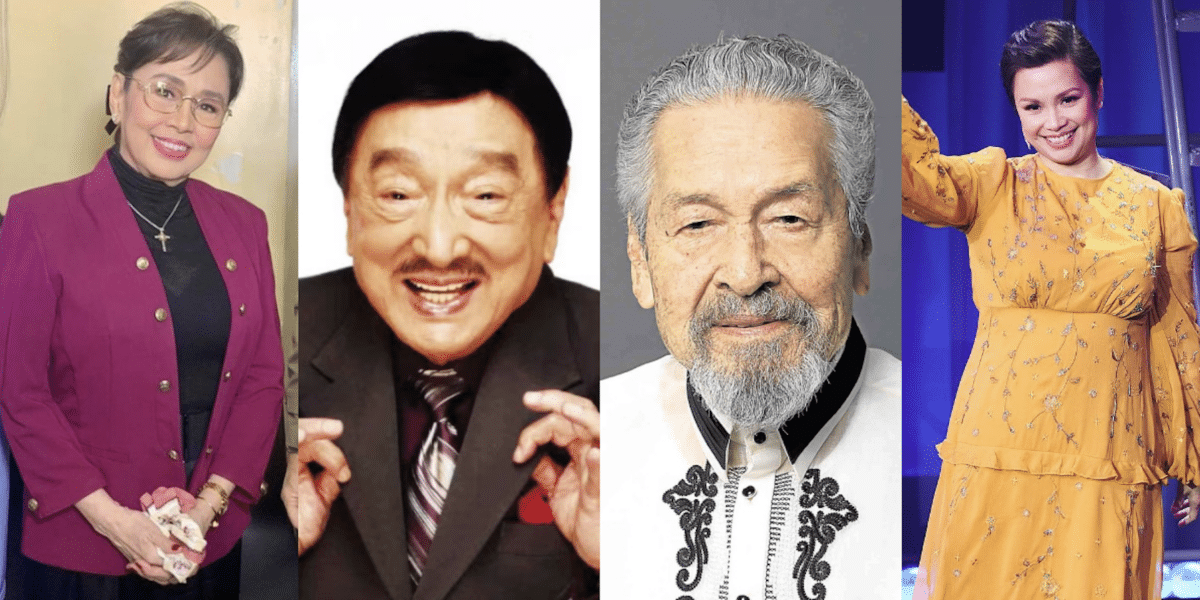PINAWA — It was a brilliant August morning on a sandy beach in the Whiteshell — an idyllic setting for a triathlon. Read this article for free: Already have an account? To continue reading, please subscribe: * PINAWA — It was a brilliant August morning on a sandy beach in the Whiteshell — an idyllic setting for a triathlon. Read unlimited articles for free today: Already have an account? PINAWA — It was a brilliant August morning on a sandy beach in the Whiteshell — an idyllic setting for a triathlon.
A few dozen athletes were chatting nervously as they prepped for the opening 750-metre swim leg of the Free Spirit Triathlon. At the back of the group a pair of newbies, standing with their coach Jonathan Courchene, were about to make their initial foray into the triathlon world. BROOK JONES / FREE PRESS Jonathan Courchene (right) gives last-minute race instructions to Phoenix (left) and Bradley before the start of the Free Spirit Sprint Triathlon in Pinawa.

They were quieter, perhaps realizing instinctively how tough their morning was going to get. Fifteen-year-old Bradley Courchene (no relation to Jonathan) and 17-year-old Phoenix Abraham, both from the Sagkeeng community, had been training for their first triathlon with Courchene. Once he hit the water, Phoenix soon remembered lake swimming is a different beast compared to his training sessions at Winnipeg’s Cindy Klassen Pool and he needed to stop and refocus before restarting.
BROOK JONES / FREE PRESS Phoenix Abraham (right), 15, and Bradley Courchene, 17, tackle the swim leg in Pinawa. “My anxiety got up because I was never (competing) in open water before,” he said later. “I have a bit to learn and it was a big challenge for me.
” Bradley, who had a case of nerves and slept little the previous night, fared better in the swim. But after running up the shore to the start of the 15-kilometre bike leg, he collapsed as he was removing his wetsuit. Although he looked unlikely to continue — after being tended to by paramedics and having time to recover — Bradley received clearance to get on his bike and he sped off to catch up to Phoenix and Courchene who were several minutes ahead.
“I (came to) this place for a reason and I didn’t want to disappoint anyone,” said Bradley, whose anxiety was compounded by consuming several Diet Pepsies overnight and an energy drink prior to the race. “I didn’t want to disappoint myself. I just kept going.
” Two exhausting hours later, a bike leg and five-kilometre running leg included, Phoenix and Bradley crossed the finish together, proudly displaying a flag from their home community. In triumph, Bradley was asked if he’ll do another. “Guaranteed yes,” he said.
Phoenix shared his excitement. “I thought to myself, maybe I could not do it,” he said. “I did try to swim and the anxiety got to me.
I tried the bike and it was beautiful...
I did push my limits and I’m proud of that.” BROOK JONES / FREE PRESS Phoenix (left), Jonathan Courchene and Bradley display the Sagkeeng flag after competing in the triathlon. It was just the sort of small miracle Courchene, whose family is originally from Sagkeeng, was hoping for.
“They both had moments of maybe I should just quit or maybe I can’t do this,” said Courchene, the lead for the mental health program with Sagkeeng Education. “Phoenix’s chest was hurting. And then we saw with Bradley how stressful that experience was for him getting out of the water and running up.
” It was reminiscent of Courchene’s initial foray into the sport several years earlier. “I remember the first time I jumped in the water (in a triathlon), I didn’t have a wetsuit. I had baggy shorts.
I didn’t know how to sight (swimming in a straight line to buoys in the open water) and I didn’t know how to breathe properly and I got nervous right away. I couldn’t get my head on the water. I thought that maybe I can’t do this.
I didn’t do this properly. I didn’t train properly. But as quick as those thoughts came, they left.
” Courchene, 41, first dabbled in triathlon at the Foilman in Morden when he was just out of his third stint in drug and alcohol rehab in 2012. He tried and failed to finish his first Ironman event in Kentucky six years later and completed his first Ironman in 2022. It was a monumental test of endurance — he took more than 16 hours to complete the 3.
9-kilometre swim, 180.2-kilometre bike and 42.2-kilometre run in St.
George, Utah — but the journey had a lasting impact in how he lives his life. He, too, crossed the finish line with a Sagkeeng flag. SUPPLIED Johanthan Courchene is believed to be only the second Indigenous person and the first from Manitoba to have completed the world championship Iron Man.
After working in social services for the past 21 years, Courchene speaks regularly about his life and particularly about his Ironman experiences with students in Winnipeg and First Nations communities around the province. He was born and grew up in the capital but a career as an athlete — he was a promising baseball player and boxer — was interrupted by episodes of drug and alcohol abuse, violence and arrest. He attended three high schools — College Beliveau, Dakota Collegiate and the University of Winnipeg Collegiate — in four years.
“I started abusing in junior high, high school and I’ve gone to rehab several times in my life,” said Courchene, recalling the time at Beliveau when he was called a “dirty Indian” by a classmate and he responded by punching his tormentor in the face. “I’ve overdosed on drugs, (almost) died from a heroin overdose and found passed out drunk in the snow when I was a boy — Grade 9 I think. So, it’s been a consistent thing in my life that doesn’t go away.
“I’ve been clean and sober long enough to know that it’s the life I want to live but not long enough to ever think that I’m OK, I’m going to be all right (and) I can have one beer or something, you know. That’s just not in the cards.” Today, he’s a polished speaker who can hold an entire gymnasium of teenagers transfixed with his story.
BROOK JONES / FREE PRESS Jonathan Courchene competes in the bike portion of the Free Spirit Sprint Triathlon in Pinawa. In 2023, he returned to Beliveau to tell his Ironman story to several hundred members of a younger generation at a school assembly. At Sagkeeng a year earlier, his story accompanied by his Ironman video — he is believed to be only the second Indigenous person and the first from Manitoba to have completed the race — resonated with students, some of whom hung back to ask questions.
During a visit to Pukatawagan First Nation, while working with Manitoba First Nation Education Resource Centre, Jonathan made his Ironman presentation to a number of junior high students during a visit to the school. He returned three months later and was walking in the hallway when I heard a student call out to him. “I turned around and saw her, this little Grade 7 girl telling me, ‘I’ve been Ironman training,’” he remembered.
“That was a nice gift. It stuck with her and hopefully will give her some fuel to go after her dreams.” But it wasn’t always like this.
“I’ve been clean and sober long enough to know that it’s the life I want to live but not long enough to ever think that I’m OK, I’m going to be all right (and) I can have one beer or something.” Courchene’s troubles often generated worry at the family home in Windsor Park, where his grandmother, Mary Courchene, and her family were one of the first Indigenous families to settle in the area. Courchene’s mom, Pamela, was frequently subjected to racial slurs and the abuse continued for her kids.
“In high school we started to notice he was having issues,” said Pamela, an educator herself. “The first time was when we got a phone call and he had been found outside. I think it was November and it was already snowing and he was outside and had he had not been found, he could have frozen to death.
So as parents, we were very concerned.” Courchene also believed he experienced some good fortune along the way. Monday mornings The latest local business news and a lookahead to the coming week.
“Sometimes I reflect on some of the things that I’ve done under the influence or some of the things I’ve done in my hurt and my pain and think like, ‘Holy smokes, I’m just so lucky,’ he said. “I know a lot of people — teenagers and young adults — that have died from homicides or suicides or drug overdoses and even two guys who died of cirrhosis of the liver.” The younger Jonathan, perhaps considered unreachable by some, had grown into an adult who can draw on his tumultuous life experiences and make a difference.
“I thought he would never do it but he’s such a determined young man and he’s been like that all his life,” said his grandmother, Mary Courchene, a residential school survivor and longtime educator who still advises for the Seven Oaks School Division in retirement. “It’s important to have those positive role models (considering) the situations that we as First Nations people endure continually. It’s good to have those positive stories.
” “When he sets his mind to do something — and it’s not only for his own good, but always looking out for other people. He works with students. ‘This is what I’ve done, and you too can do it, you know.
’ So I’m very, very proud of him.” Being a role model is hard but essential work. “It’s really important for our students to have those positive role models,” Pamela said.
“To be able to say, ‘Hey, he’s from here. If he can do that, I can do that.’ It’s important to have those positive role models (considering) the situations that we as First Nations people endure continually.
It’s good to have those positive stories.” Earlier this year, he made it known at Sagkeeng that he would volunteer to coach anyone interested in testing themselves in a triathlon. “It’s not an Ironman, but I called it the Ironman challenge,” Courchene said.
“It’s a road to becoming an Ironman.” Phoenix and Bradley were keen to train and open water swims and highway cycling at St. Malo Lake gave them a taste of what they would face.
BROOK JONES / FREE PRESS Jonathan Courchene (third from far left), gives last minute instructions to Phoenix (second from left) and Brad (far left) before they start the swim portion of the Free Spirit Sprint Triathlon. Courchene has been coaching both in the sport. “One of the things that I repeated with Bradley regularly was this is yours to protect,” said Courchene.
“All this work that he did is his – not mine. He’s in that water, he’s on the bike, he’s running pavement — not me. I’m right there with him but it’s his.
He’s the one putting it in the bank, not me. “So that day, when he were in the water at St. Malo and he wanted to quit and he told me I can’t force him to do anything.
I said, ‘OK, do what you want. You can carry on, or you can give up and throw everything away.’ You’re the one who put in all that work and not me.
So it’s your choice, and then I swam away.” Bradley then went ahead and swam several more laps on the training course. BROOK JONES / FREE PRESS Phoenix (left) and Bradley wear finisher medals around their necks after completing the triathlon in Pinawa.
”There are so many of us that are so defensive, because we’re too scared to be vulnerable,” said Courchene said. “There’s varying degrees of trauma across our First Nations communities — horror stories that I’ve learned about in my time in CFS and 20 years working as a social worker to ones that aren’t so bad. “Everyone’s had varying degrees of that trauma and how they respond to that trauma and that stress and being able to sit there and listen to somebody you don’t know that well might be a difficult thing to do.
” For Phoenix, who attends high school in Winnipeg, the triathlon experience fits into a bigger equation. “The reason I want to push myself was because in the past I wasn’t doing so well,” he said. “My behaviour wasn’t good.
I thought to myself, I did change over the years and I’m proud of myself for that. I changed my diet. I changed my weight and I’ve gone to the gym.
.. And I look back at myself and think, ‘Wow, how did I come this far?’” Completing the Ironman in 2022 was a defining moment but Courchene’s life story is evolving.
The inspiration, so much about healing at the start, has become a mission focused on redemption and helping others. “Helping others is important to me and always has been, which I think learnt from my mom,” Courchene said. “I have been in the field of social service since 2003 and it’s likely what I will always do.
My story is nothing compared to the story of so many First Nations youth in our country however. “So many kids have experienced so many struggles and hardships. I am lucky for the many blessings I have had in my life.
I am lucky I come from a good family with lots of love. But we have to share our blessings with others — that’s how we all make it.” mike.
[email protected] Mike Sawatzky is a sports reporter at the .
He has been working at the newspaper since 2003. . Every piece of reporting Mike produces is reviewed by an editing team before it is posted online or published in print — part of the ‘s tradition, since 1872, of producing reliable independent journalism.
Read more about , and . Our newsroom depends on a growing audience of readers to power our journalism. If you are not a paid reader, please consider .
Our newsroom depends on its audience of readers to power our journalism. Thank you for your support..



















